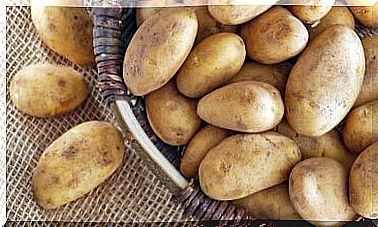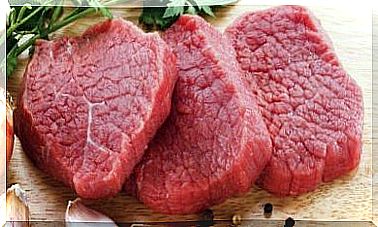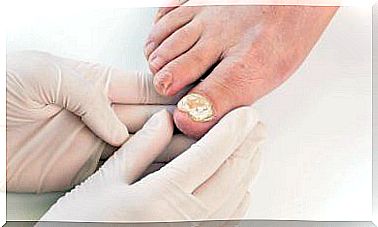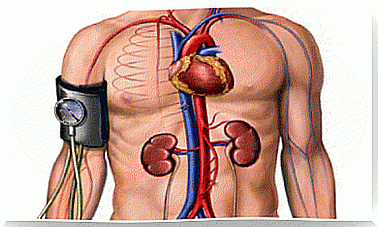Diet In Polycystic Ovary Syndrome
Polycystic ovary syndrome (PCOS) is the most common cause of infertility in women; It is estimated that 1 in 1 women of childbearing age suffer from it. It is essential to take care of the diet in polycystic ovary syndrome, since normally patients who suffer from it tend to develop insulin resistance.
An incorrect management of this pathology can trigger complications in the medium and long term, especially metabolic ones. Diet can become a turning point when making a prognosis about the evolution of the disease.
Does this disease afflict you? Do you want to know how to take care of yourself with food? Although it is essential that you go to the nutritionist, in this article we want to share some general recommendations to improve your diet. Keep them in mind!
Diet and polycystic ovary syndrome
Polycystic ovary syndrome is a common condition caused by an imbalance of reproductive hormones. This hormonal imbalance causes problems in the ovaries.
The ovaries are responsible for producing the eggs that are released every month as part of a healthy menstrual cycle. If a woman has PCOS, the egg may not develop or shed during ovulation as it should.
PCOS can cause amenorrhea or irregular menstrual periods. Irregular periods, in turn, can lead to infertility or the development of cysts in the ovaries.

What are your causes?
The exact cause of PCOS is unknown. Most experts consider several factors, including genetic factors, as possible causes. Some of its most recognized causes are:
High levels of androgens
Androgens are sometimes referred to as “male hormones,” although all women make small amounts of androgens. Women with PCOS have more androgens than normal.
This can prevent the shedding of an egg from an ovary in each menstrual cycle and can cause excess hair and acne.
Elevated insulin levels
Insulin resistance occurs when cells do not respond normally to the insulin. As a result, insulin levels in the blood are higher than normal.
Many women with PCOS have insulin resistance, especially those who are overweight and obese, according to research published in the journal CES Medicine. Patients with this condition often have unhealthy eating habits, are not physically active, or have a history of diabetes. Over time, insulin resistance can trigger type 2 diabetes.
Dietary treatment of polycystic ovary syndrome
Diet can be a very important factor in controlling the symptoms of PCOS. As we have said before, women who suffer from obesity are more likely to develop it, so maintaining an adequate weight would be a protective factor.
A 5% reduction in weight can improve problems such as insulin resistance, high androgen levels, and reproductive system dysfunctions.
A study published in the Journal of the Academy of Nutrition and Dietetics on diet in polycystic ovary syndrome advises that overweight patients lose weight to reduce the severity of the disease.
This is more important than the composition of the diet itself, as long as it is healthy, although it seems that a low-carbohydrate diet can provide greater benefits for both weight loss and glycemic control.
But not only overweight women should be attentive to their diet, also in normal weight women with PCOS blood insulin levels are higher than those of women without this syndrome. Therefore, all must take care of the glycemic index of food.

Therefore, a low glycemic index diet could be a suitable approach, that is, without sweets or sugar, and with a low content in cereals, bread and root vegetables. Instead, it is advised to base your diet on:
- Fruits and vegetables.
- Nuts and seeds.
- Vegetables.
- Dairy and eggs.
- Lean meats and fish.
It has also been shown in an article published in the journal Medical Hypotheses that intermittent fasting reduces insulin resistance, helps alleviate other symptoms of PCOS and improves hormone levels.
Vitamin supplements
Supplementation with certain vitamins could improve the symptoms of the disease.
Inositol
Women with PCOS are often deficient in an enzyme called epimerase, which is necessary to have correct levels of a compound called D-Chiro Inositol. Since this failure raises glucose and insulin values in the blood, a good option is supplementation with D-Chiro Inositol.
It has been found effective, in research published in the journal Gynecological Endocrinology, to recover the ovulatory cycle, improve insulin resistance, reduce acne and hirsutism, as well as total cholesterol and triglycerides.
Folic acid
It can help treat ovulatory infertility. Vegetables such as green leaves, fruits, and legumes are rich in this vitamin.
Vitamin D
A vitamin D deficiency is associated with increased insulin resistance and weight gain.
Eating a proper diet and doing physical exercise is essential for the treatment of PCOS, as well as pharmacological or hormonal treatment, especially in women who want to become pregnant.
Improve diet to treat polycystic ovary syndrome
Although its causes are unknown for sure, polycystic ovary syndrome is known to respond positively to dietary treatment. For this reason, it is essential to increase the intake of certain foods and reduce the consumption of carbohydrates.









